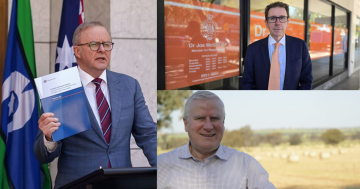
Department of Veterans’ Affairs Secretary Alison Frame. Photo: DVA.
Australian Defence Force (ADF) veterans who had compensation claims held up in a Department of Veterans’ Affairs (DVA) assessment backlog may finally have their cases close to resolution, with the government declaring it has reduced the backlog to almost zero.
The assessment backlog had been raised as a serious concern in the Royal Commission into Defence and Veteran Suicide’s Interim Report which said it stood at 42,000 in mid-2022 and was causing ongoing mental health issues for veterans.
The royal commission had set a deadline of 31 March 2024 to clear the backlog.
A 13 February government release says that backlog had fallen to below 3700 by the end of January, and that all new initial liability and incapacity claims are now allocated for processing within two weeks. It said DVA was also on track to clear the backlog of permanent impairment claims before the end of February.
The release says the backlog has been effectively cleared through the allocation of 500 additional claims processing staff and in greater investment in information and communications technology.
Minister for Defence Personnel and Minister for Veterans’ Affairs Matt Keogh said eliminating the claims backlog was a huge step in the right direction and the staff in DVA were to be commended for their tireless work.
“DVA’s claims workforce is continuing to work on processing veterans’ claims as quickly as possible,” he said.
“While more claims continue to be lodged every day, in November a record 9800 claims determinations were made which means veterans and families are receiving the support they need, sooner.
“DVA is now shifting to a new business as usual working model, aiming to allocate all claims to a processing officer within two weeks of receipt.”
The Australian Peacekeeper and Peacekeeper Veterans’ Association (APPVA) welcomed the reduced backlog, saying the accomplishment realises the objective it set when it advocated for publishing claims data, fostering greater transparency and accountability.
It said the announcement reassures our nation’s veterans, their families, and prospective ADF members that following a claim submission, they can promptly interact with a DVA case manager in a little more than two weeks.
It said this swift service replaced the agonising delays, previously up to six years, allowing for immediate approval of medical treatment and aligning with the rapid support to veterans and their families in a way that met the expectations of the community.
Chairperson of the APPVA Ian Lindgren said this was just one step towards reducing veteran suicidal ideation. He highlighted the need to address the practice that allowed veterans to serve for 40 years, contribute to superannuation, and then lose up to 100 per cent of that superannuation if they filed a claim for a service-related injury or illness after discharge.
Mr Lindgren also applauded the highly regarded DVA Secretary Alison Frame’s role in reducing the backlog. “We recognise Secretary Alison Frame’s pivotal role in transforming DVA’s internal culture to one that is positive and inclusive,” he said.
“This paradigm shift promises a new horizon where veterans and their families are treated as equals, collaboratively shaping policies and services essential for their wellbeing.
“Such reforms carry profound implications for how our nation honours and supports those who have committed their lives to our safety and security,” he added.
“Our experience suggests that this is some time away, however if it happens, then we will recognise the efforts by not only the government, the Minister and DVA, but also the hardworking welfare and compensation advocates that help our veterans through this process.”
President of the Australian Commando Association of the ACT Alex Meiliunas also welcomed the news, saying that understanding the time it takes to process DVA claims is complicated but important, and that the Australian Commando Association of the ACT strongly supports greater transparency of this process for veterans and the public.
“I would particularly like to congratulate DVA on the Provisional Access to Medical Treatment program (PAMT) initiative, as this program enables veterans to engage in treatment immediately while waiting for claims to be processed,” he said. “Understandably there is much to do to improve access to care for veterans.”
Original Article published by Andrew McLaughlin on Riotact.










